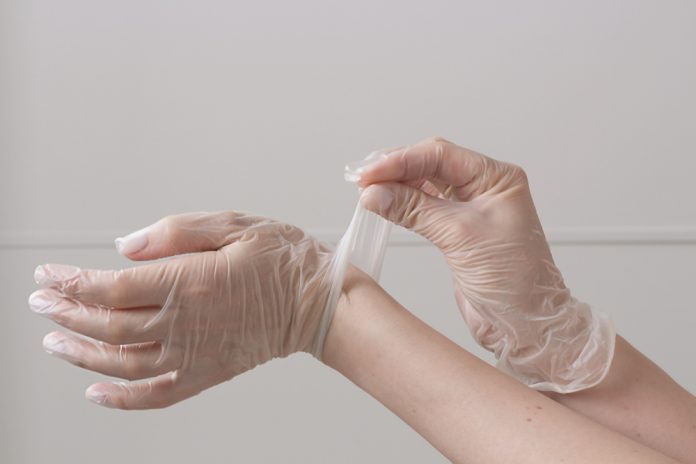When it comes to restaurants and retail outlets, efficiency & safety are paramount.
And a small but essential item often plays a crucial role: Gloves.
Handling food in a busy kitchen, assisting customers in a retail store, or even janitorial & sanitation use all require that you make the right choice of gloves.
Let’s discuss the pros & cons of different types of gloves, including vinyl, nitrile, deli, and latex so you can make an informed decision, tailored to your business’s specific needs.
Vinyl Gloves
Pros
- They’re affordable. They’re a budget friendly option, great for businesses that go through gloves quickly.
Commonly used in the food service industry for tasks like food preparation & handling. - They’re comfortable. They fit comfortably and are latex-free, making them suitable for individuals with latex allergies.
Frequently used by restaurant staff and food handlers who require dexterity and comfort during extended wear.
Cons
- They’re not durable. While vinyl gloves are comfortable and cost-effective, they are less durable than other options. They’re not suitable for tasks requiring a high level of protection.
- They offer limited resistance to chemicals, so they are not recommended for tasks involving exposure to strong cleaning agents or hazardous materials.
Nitrile Gloves
Pros
- They provide exceptional protection against chemicals, punctures, and contaminants.
Commonly used in healthcare settings, laboratories, for cleaning, and industries that require proper barrier protection.
- They’re latex free, and therefore, allergy friendly.
Preferred by healthcare professionals & lab technicians.
Cons
- They’re expensive. But the added protection they offer may justify the cost.
- They’re less stretchable which makes them less comfortable than other options.
Deli Gloves
A specialized type of glove commonly used in food service establishments, particularly delis and sandwich shops. They are typically made of polyethylene.
Pros
- Very affordable.
Specifically designed for food-handling.
- Ideal for maintaining food safety and preventing contamination.
Often a staple in delis and fast-food kitchens.
Cons
- They don’t have many use cases. May not provide adequate protection for tasks outside of the foodservice industry.
- Minimal barrier protection against chemicals or punctures.
Latex Gloves
Pros
- Offer excellent fit & comfort.
Preferred choice for medical & dental professions.
Cons
- Latex allergies are common, so latex gloves may not be suitable for individuals with latex sensitivities. They are primarily used in medical settings where latex allergies are not a concern.



